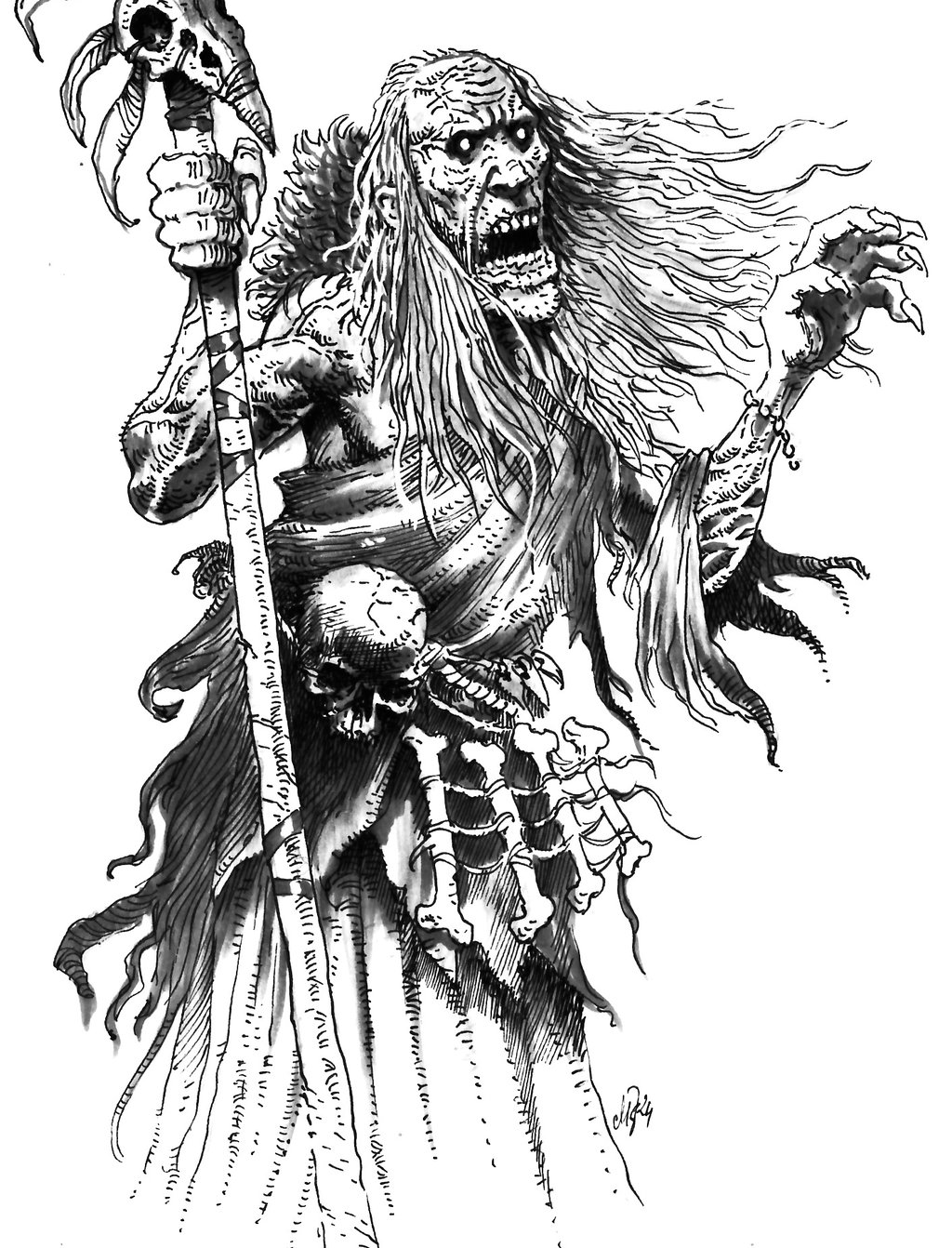The Stillborn Cult
Worshiping the unrealized
8/20/20252 min read


South of Karonia, where the kingdom’s rivers bleed into the Bloodwake Sea, lies a brackish, fog-shrouded swamp known as the Charnel Mire. It is a place shunned by local folks and passerby alike, for the land itself is a graveyard. Off the coast, ancient, leviathan bones jut from the black water like skeletal trees, remnants of sea creatures so vast they defy imagination. It is here that the adherents of the Stillborn Cult dwell, a society of humans who practice a faith centered on failed life and the sanctity of rot.
The cult’s core belief is that true divinity lies in the potential that is never realized. They worship the “Stillborn God”, a conceptual and archetypical deity representing everything that could have been: stillborn infants, blighted crops, and, most importantly, the colossal leviathans that died before they could fully dominate the oceans. The cultists dive the depths of the sea just to harvest these bones, and build their homes and idols from them, believing they hold the echoes of their unfulfilled might. Their priests claim to be able to interpret the voice of the Stillborn God in the sucking mud and the groaning of the ancient skeletons settling deeper into the earth.
Initiation into the cult is a grim ordeal. Aspirants are submerged in a peat bog for three days, breathing through a reed. In the sensory deprivation and suffocating darkness, they are expected to receive a vision from the Stillborn God. Those who emerge are considered reborn into the faith; those who do not are seen as having given a worthy sacrifice to the mire itself, their bodies becoming part of the sacred landscape, and their unrealized potential added to the Stillborn God’s power.
Outsiders view the cultists with a mixture of fear and revulsion, but some see opportunity. Alchemists from Veldonia occasionally trade for Mire-Rot, a potent fungal paste that grows only on the leviathan bones and is said to induce powerful hallucinations of one’s own failed futures. Still, most of the people who know of their existence see them as harmless lunatics and are happy to have them relegated to inhabiting such an inhospitable region of Alderworth.




